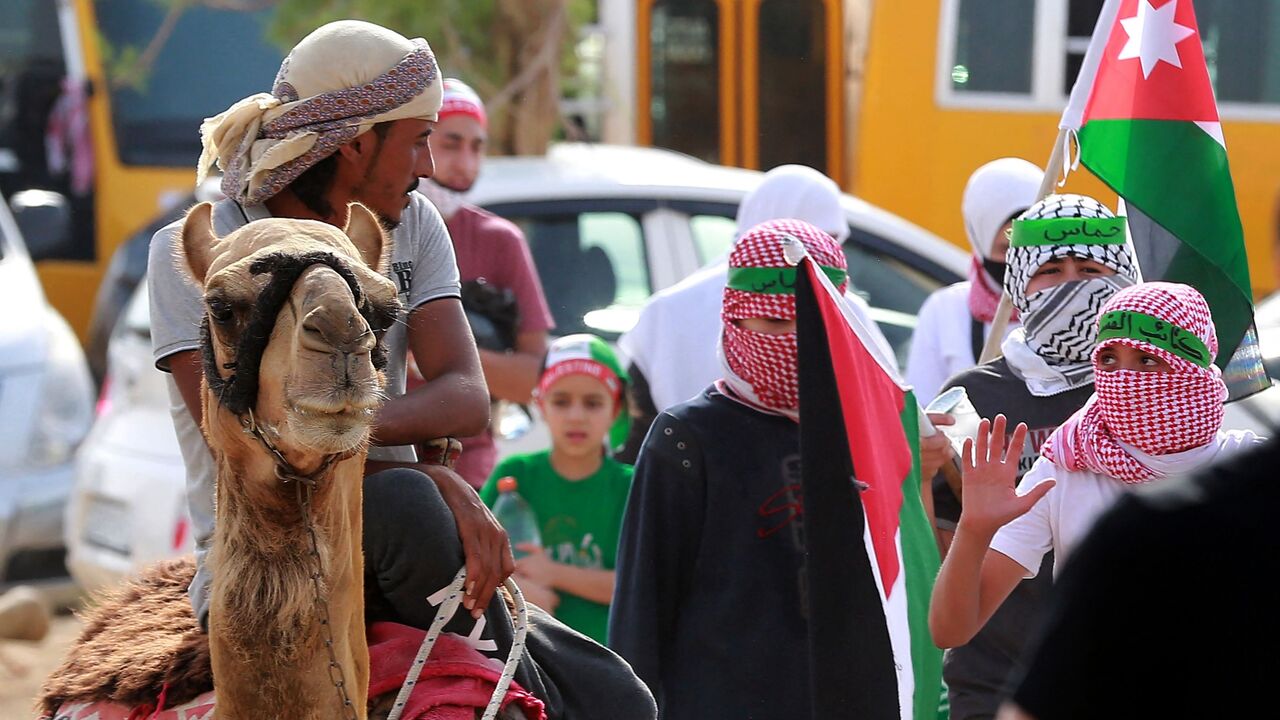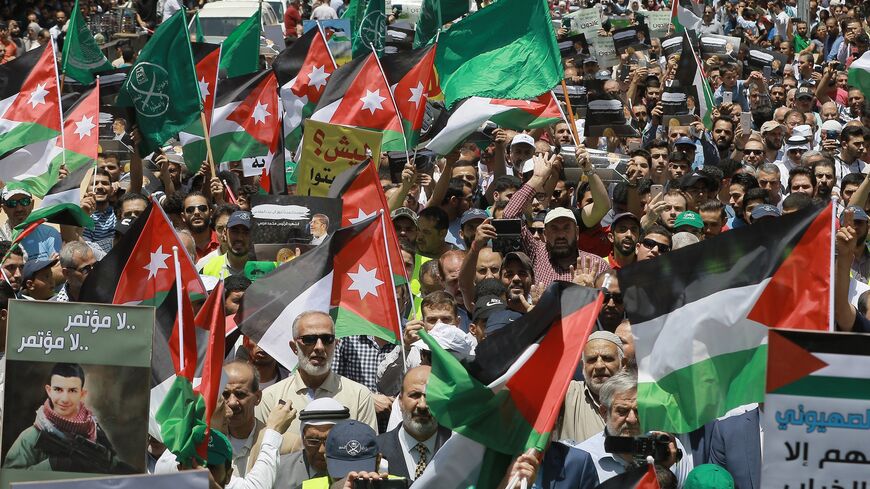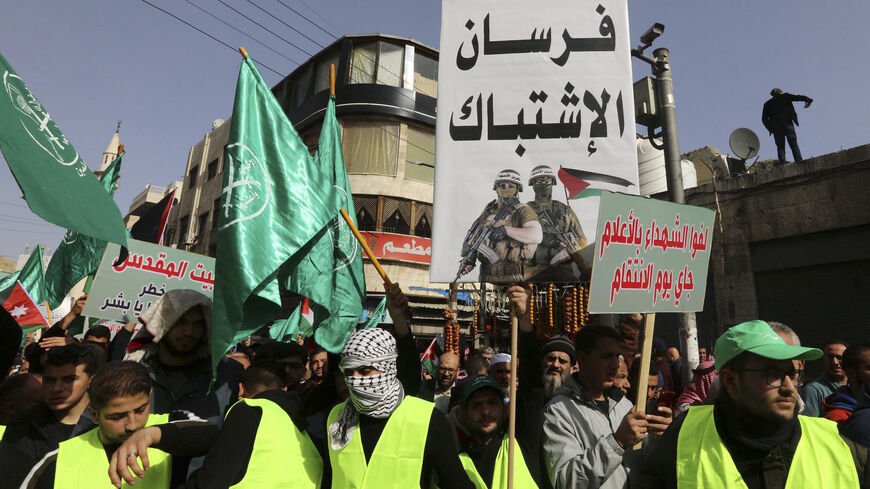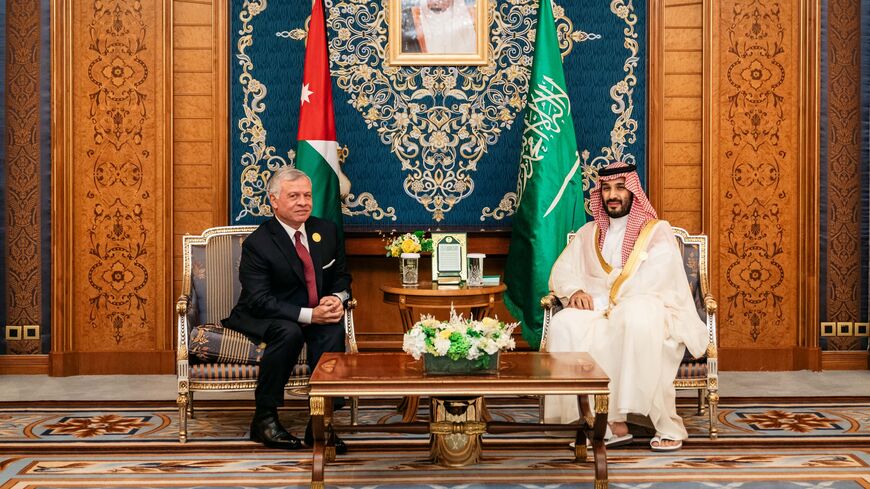Jordan targets charities for alleged Muslim Brotherhood ties: What to know
Jordan banned the Muslim Brotherhood in April and arrested some senior members of the related Islamic Action Front last month.

The Jordanian government announced legal actions on Wednesday against organizations suspected of working with the outlawed Muslim Brotherhood, escalating its crackdown against the Islamist group after banning it in April.
What happened: The official Petra news agency reported that measures were taken against several entities in the country on suspicion of operating under the "influence" of the Muslim Brotherhood. The Companies Control Department referred the Forum for the Training and Empowerment of Women and Children — a family support organization — to the public prosecutor for allegedly not submitting 2024 financial statements and not disclosing its owner, according to the agency.
The Ministry of Social Development referred the Green Crescent Charity, the children’s charity Al U’Rwah Al Wuthqa and an organization named Sawaed Al-Ata Initiative to the public prosecutor for alleged administrative violations and unauthorized fundraising, per Petra.
Petra reported that the Barari Flower Charity dissolved itself after unspecified legal proceedings against it and that authorities continue to investigate the Muslim Brotherhood’s assets.
The Forum for the Training and Empowerment of Women and Children, Green Crescent Charity and Al U’Rwah Al Wuthqa did not immediately respond to Al-Monitor’s request for comment. Al-Monitor was unable to find a record of Sawaed Al-Ata Initiative, and efforts to contact Barari Flower Charity were unsuccessful.
The Muslim Brotherhood was founded in Egypt in 1928 and is active across the Arab world, including in Syria, the Palestinian Territories, Tunisia and Jordan.
The Jordanian Interior Ministry announced a ban on the Brotherhood’s activities in April, following an alleged plot against the kingdom that authorities said was linked to the group. Jordan’s top court had actually ordered the Brotherhood to dissolve back in 2020, but the decision was not implemented.
The Islamic Action Front, widely considered the political arm of the Muslim Brotherhood in Jordan, is the largest party in the Jordanian parliament. The party’s offices were raided following the ban, though the decision does not formally apply to them. Islamic Action Front leader Wael Saqqa said the party had “no relationship with any other organizational body” at the time in an attempt to distance themselves from the Brotherhood.
Why it matters: Jordanian authorities have worked to crack down on the Muslim Brotherhood and the Islamic Action Front since the ban. On Saturday, Petra reported that authorities in the Red Sea city of Aqaba thwarted an attempt to "to smuggle documents and materials from a property linked to the banned Muslim Brotherhood group." A member of parliament was among those implicated in the case, according to the outlet.
The X account for Murad Adaileh — a senior figure in the party — posted that he was arrested on June 23 but released the same day after giving statements to the public prosecutor.
A week earlier, the Islamic Action Front said in a statement that their deputy secretary-general, Jamil Abu Bakr, had been arrested for unknown reasons. The party condemned the arrest, calling it part of a “broader effort to restrict the Islamic Action Front as part of a crackdown on political activists and the public freedoms.”
“This comes at a time when the country is most in need of strengthening the internal front and unifying national ranks, given the internal challenges and external threats facing Jordan, chiefly the Zionist threat,” said the party, referring to the Gaza war.
Following the Muslim Brotherhood ban, some observers warned that targeting the Islamic Action Front could provoke anger among Jordanians.
“Targeting the party would have had significant risks for the government, given the IAF’s representation in parliament,” read a May report from Chatham House. “Clearly, a decision was made against outlawing the IAF — most likely because it would have risked stoking widespread discontent at a sensitive moment for the kingdom.”
Know more: The ban of the Muslim Brotherhood followed the group’s provocative rhetoric over the Gaza war, including calls for protests outside of embassies and marches toward the Israeli border, as well as praise for Hamas. The Hashemite Kingdom viewed such actions as red lines, Al-Monitor reported at the time.
Jordan has sought to maintain stability in the country amid the Gaza war and other regional conflicts. The Israeli-Jordanian peace agreement of 1994 has been challenged by the current war but has largely withstood continued turbulence in the Palestinian territories.





